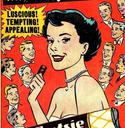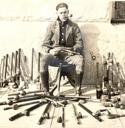In Speaking to the Heart, it becomes clear that the author’s experience of the trials and joys of fatherhood inform the book with a reality that many will find hopeful. Mr Gabriel and his wife, Peggy, have eight children and sixteen grandchildren. He works for the federal government as a senior financial analyst as well as being a freelance writer.
The book is centered on the theological virtues of faith, hope, and charity, as well as the cardinal virtues of prudence, justice, fortitude, and temperance. Experience has confirmed for Mr Gabriel the age-old wisdom that in order for our children to thrive, actually to become virtuous, they need not only to be taught what the virtues are, but to experience constant practical instruction and the witness of virtuous people. As a reliable mentor, he outlines a sensible balance between family life, work, and recreational activity.
In each chapter, one virtue is introduced by a short biblical quotation, followed by a passage from a famous author on the same virtue. A one-page definition of the virtue combined with suggestions on how fathers can grow in each particular virtue completes the chapter. The chapters are streamlined so that one could read a chapter during a break or at lunch and reflect on it during the day.
The chapter on the virtue of friendship begins, “I shall not call you servants any more, because a servant does not know his master’s business; I call you friends, because I have made known to you everything I have learned from my father” (John 15:15). Gabriel quotes William Penn on friendship, “Friendship is a union of spirits, a marriage of hearts, and the bond thereof virtue.” The root of friendship is the real knowledge of the other, “a knowledge of the inner person.” Husband and wives are each other’s best friend. Each spouse flourishes when correction is given in love, which can be difficult for both parties. Telling someone the truth is one of the most loving things friends can do for each other. Gabriel suggests developing a healthy sense of friendliness to help us become friends with people we ordinarily wouldn’t think we could get close to. This seems an apt suggestion in the year of faith and the new evangelization.
The book is well suited for young fathers or men thinking of getting married. The sensible suggestions at the end of each chapter will help young men become aware of the various daily situations and temptations they may face in the struggle to become good husbands and fathers. Gabriel knows that the only way to raise virtuous children is to become virtuous yourself.
Fathers can learn to see themselves through their daughter’s eyes. This is a vital characteristic of Dr Meg Meeker’s book, Strong Fathers, Strong Daughters. Meeker says, “I want you to see yourself through her eyes. And I don’t want this just for her sake, but for yours, because if you could see yourself as she sees you, even for ten minutes, your life would never be the same.” Meeker points out that a daughter measures every man that comes into her life against her father. If father and daughter have a good relationship, she will choose boyfriends who will treat her well. “If she sees you as open and warm, she’ll be confident with other men. If you are cold and unaffectionate, she’ll find it hard to express love in a healthy way.”
Dr Meeker practices pediatric and adolescent medicine. She is married and has four children. Her book is inspired by her experiences as a mother and practicing physician, with twenty years of experience treating children and families. It is clear that she keeps up on the latest articles and journals required by her profession. These experiences lead her to identify ten secrets every father should know which she spells out in individual chapters. They are:
You Are the Most Important Man in Her Life
She Needs a Hero
You Are Her First Love
Teach Her Humility
Protect Her, Defend Her (and use a shotgun if necessary)
Pragmatism and Grit: Two of Your Greatest Assets
Be the Man You Want Her to Marry
Teach Her Who God Is
Teach Her to Fight
Keep Her Connected
The format of each chapter is the same: Dr Meeker explains the secret by providing real-life examples of how people have worked through problematic situations. Using stories from people’s lives is a two-edged sword. It can be helpful to see that other people have experienced similar situations in life, but it can become a bit tedious to read numerous stories about people you do not know.
Although Dr Meeker is a practicing Christian, the book is aimed at a secular audience. As a mother and a doctor, the author has both personal and professional insight into the problems of modern society and its particular instabilities and is aware, therefore, that seemingly obvious ideas nevertheless need to be clearly articulated. It is a compelling feature of the book that, despite being published by a secular publishing house and intended for a secular audience, it does not regurgitate the usual “progressive” view of hot-button issues: sex education, divorce, complementarity of man and woman, and fathers being the head of the family. To be sure, she does not use the theological language of Blessed John Paul II or Benedict XVI, but Dr Meeker is writing for men who are not conversant with their works. She is writing for those fathers who have just begun to see the toxicity of the culture, and she offers advice to help them make their way through the minefield of modernity.
Dr Meeker, as a mother and practicing physician, is also aware of the different pressures to which fathers are subject. For example, she notes the marketing mania for children’s clothing wherein “after age six, ‘little girl’ clothes are hard to find. Many outfits are cut to make her look like a seductive thirteen- to fourteen-year-old girl trying to attract older boys.” To counteract this perverse advertising, the first obvious truth Dr Meeker discloses is that fathers are the most important men in their daughters’ lives. She tells fathers that their daughters need their masculine courage, their intelligence and fearlessness, along with their empathy, assertiveness, and self-confidence.
Meeker has treated daughters whose fathers have not developed these character traits. The most common problems she faces in the treatment of young girls can be disquieting even for those who keep up on cultural indicators. These are girls who, at an early age, have experienced sexual activity, drug use, bulimia, the contraction of sexual transmitted diseases, and the depression that follows from sexual activity before marriage.
Dr Meeker provides plenty of statistics showing just how poisonous the culture has become. For some, this will be a routine overview of the situation, but she is writing for those unfamiliar with the depth of the problem. For the latter, the information can be upsetting. It is refreshing to see that she is aware of the duplicity of SIECUS (Sexuality Information and Education Council of the United States). Under the guise of “assisting children in understanding a positive view of sexuality,” SIECUS advocates debased moral activity. Dr Meeker outlines SIECUS’s guidelines for “sex education” in public schools. Her list is quite long so a short sample must suffice. Starting in kindergarten students are taught that “touching and rubbing one’s own genitals to feel good is called masturbation.” Starting in third grade, students are taught “homosexual love relationships can be as fulfilling as heterosexual relationships.” Starting in seventh grade, students are taught “masturbation, either alone or with a partner, is one way people can enjoy and express their sexuality without risking pregnancy or STD’s/HIV.” Also, “Having a legal abortion rarely interferes with a woman’s ability to become pregnant or give birth in the future.”
A constant theme throughout the book is that fathers must provide nurturing and leadership in all areas of family life or children can easily end up getting affirmation and information somewhere else. She notes that in the area of the child’s natural yearning and questions about God, if a father does not take the lead the daughter will come up with answers on her own and the father’s authority will be replaced by another’s.
Although leadership in our daughters’ religious life is most important, they need male leadership in all areas of their life. If a father will not lead, the child is left to navigate the major questions of life by the standards of the prevailing culture. If the father does not teach what is good and that the truth is knowable, and does provides unconditional love, children will look to other places that can easily be destructive to them.
Pope Benedict XVI made the same point in his book, Turning Point For Europe. In the book, he mentions a dinner party he attended in the 1960s where the topic of teenage drug use was discussed. Cardinal Ratzinger noted that drug use is
…the result of despair in a world experienced as a dungeon of facts, in which man cannot hold out for long. Naturally, many other things are involved, too; the search for adventure; the conformity of joining in what others are doing; the cleverness of the dealers, and so on. But the core is a protest against a reality perceived as a prison. The “great journey” that men attempt in drugs is the perversion of mysticism, the perversion of the human need for infinity, the rejection of the impossibility of transcending immanence, and the attempt to extend the limits of one’s own existence into the infinite. The patient and humble adventure of asceticism, which, in small steps of ascent, comes closer to the descending God, is replaced by magical power, the magical key of drugs – the ethical and religious path is replaced by technology. Drugs are the pseudo-mysticism of a world that does not believe yet cannot get rid of the soul’s yearning for paradise. Thus, drugs are a warning sign that points to (something) very profound: not only do they disclose a vacuum in our society, which that society’s own instruments cannot fill, but they also point to an inner claim of man’s nature, a claim that asserts itself in a perverted form if it does not find the correct answer. [My emphasis.]
Another refreshing issue brought out in the book is the false notion that divorce, even a so-called amicable divorce, is good for children. “The most common cause of unhappiness and despair, what crushes the spirit of children more often than anything else, is divorce. Divorce is really the central problem that has created a generation of young adults who are at high risk for chaotic relationships, sexually transmitted diseases, and confusion about life’s purpose.”
Dr Meeker is realistic in the area of the complementarity of husband and wife as good for marriage and raising children. Although she does not use the terminology of the husband being the head of the family with primacy of authority, and the wife the heart of the family with the primacy of love, this pattern is, nevertheless, illustrated in various ways throughout the book. She is clear that the physical, psychological, spiritual, and emotional differences between husband and wife are good and meant to enable family life to flourish. As head of the family, the father protects and provides for those entrusted to his care. Women, as the heart of the family, naturally look to nurture and support those around them in a personal way.
Meeker writes: “men see problems differently than women do. Women analyze and want to understand; men want to solve – they want to do something…of course, I’m not saying that all fathers are analytical or pragmatic or better at this than their wives, but it is certainly true in general that mothers and fathers have complementary approaches to problems: fathers reach immediately for solutions while mothers yearn to understand and empathize. Your daughter needs you to be that voice of reason and pragmatism.”
Each book can be recommended with the caveat that they were written for distinct audiences. Mr Gabriel’s book would be an excellent gift for new fathers or engaged men who are active in the Church. Dr Meeker’s book is written for someone not particularly religious, but who senses something is amiss within society and is looking for help to find the right answers.
Nick Bagileo is the Associate Dean for Programs and Administration at the John Paul II Institute for Studies on Marriage and Family in Washington, DC.



